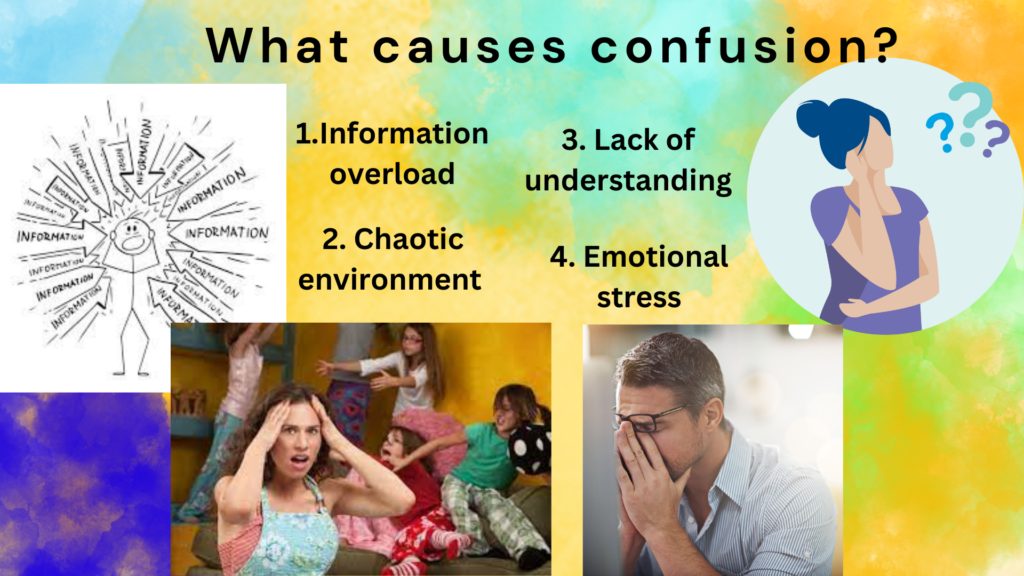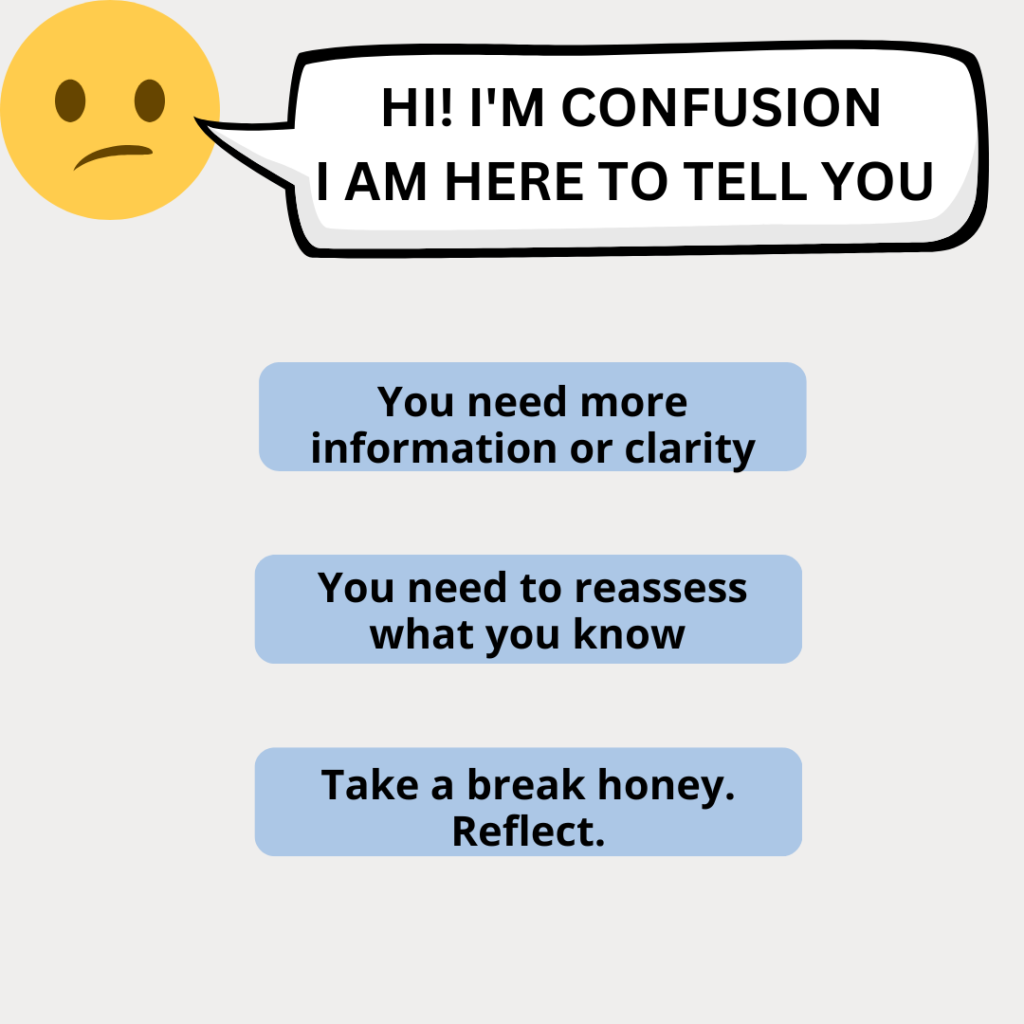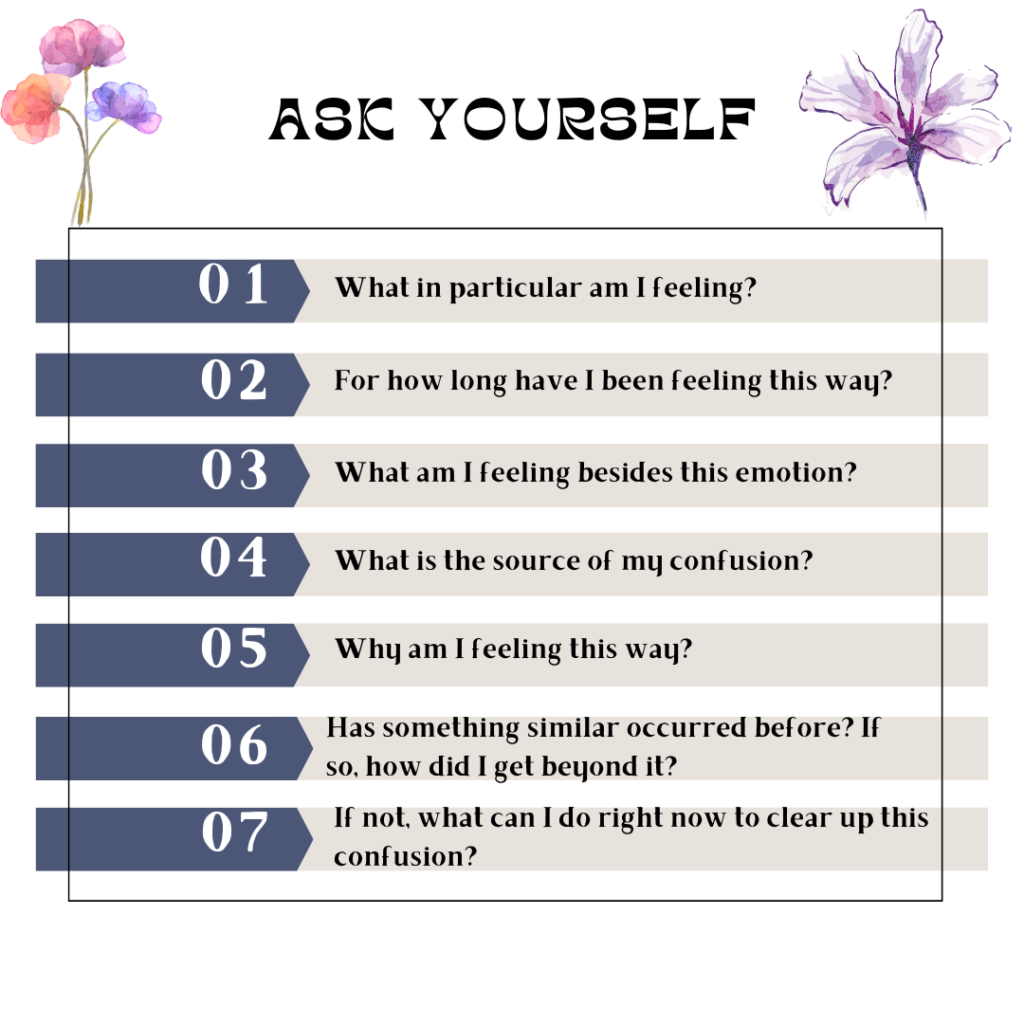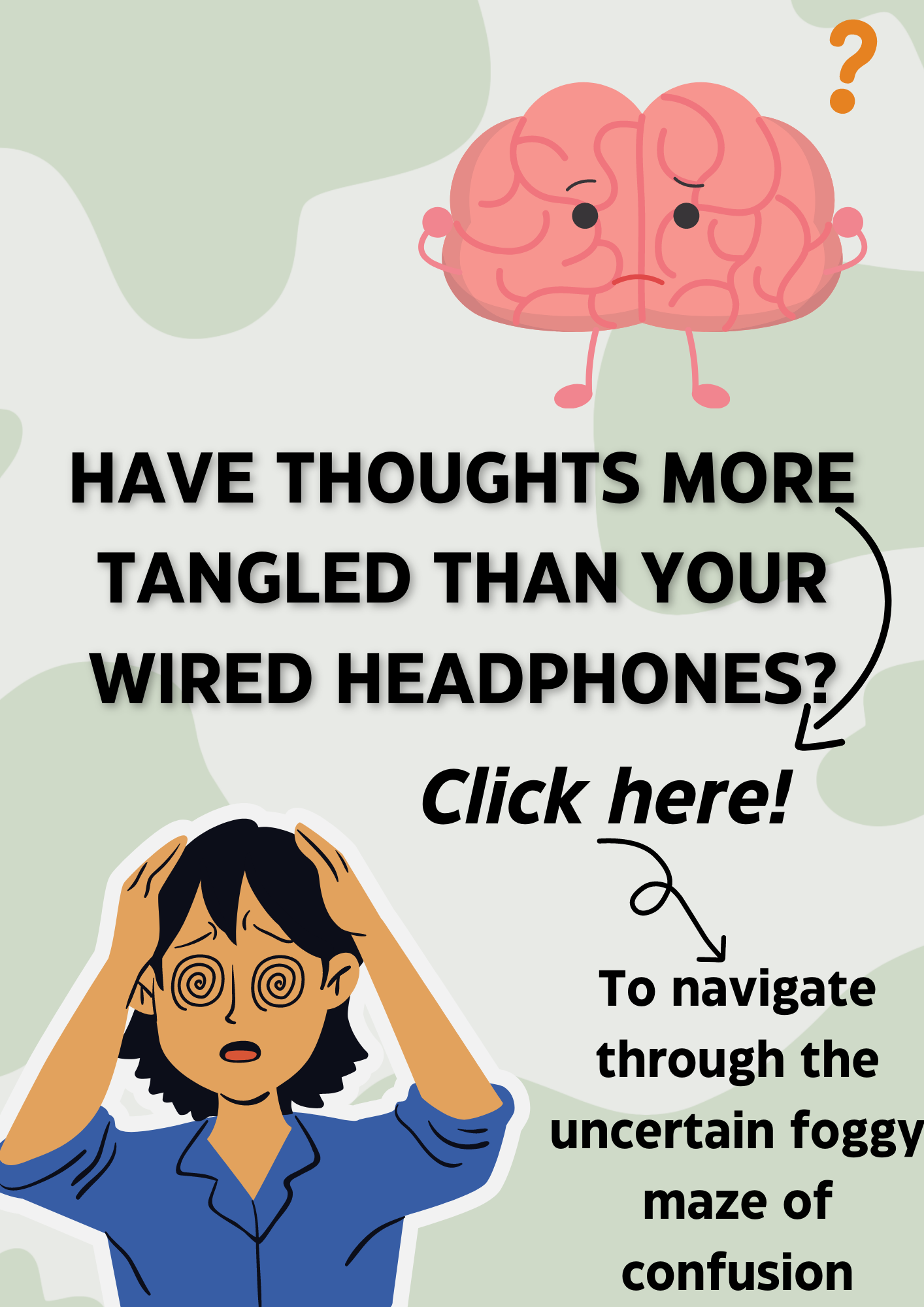Feeling lost in a maze of questions with no clear answers? Tired of being tangled in a web of uncertainties? Here we are! Helping you to navigate through the chaos of confusion with clarity and confidence. Here, we delve deep into the intriguing world of confusion, enlightening you on the what, the when, the why and the how of confusion, perhaps giving you a refreshing perspective.
Confusion is like a puzzle with one missing piece, it leaves us uncomfortable, bewildered, and frustrated. It clouds our judgement and stirs up a whirlwind of emotions within us. We keep searching for the answer to our confusion like we do when one piece of the puzzle is missing. Yet, amidst the chaos, confusion holds profound insights, powerful lessons and hidden truths that are waiting to be discovered.
Being confused is a common occurrence, and we are here to tell you that IT IS OKAY! Before you continue reading, it is important to keep in mind that confusion is temporary, and is something that you can resolve.
By definition, confusion is finding difficulty in understanding something. Confusion is an emotion that makes you feel disoriented and have a hard time focusing or making decisions. It is a complex and often unsettling emotion, which may arise when one’s understanding or perception of a situation, concept or emotion is unclear.
Now that we’ve discussed what confusion is, how do you know you’re confused? Confusion may emerge in a variety of ways, depending on the individual. Because we are each special, we may experience varying symptoms of confusion; nonetheless, there are some common indications that may assist you in recognising your confusion.
Difficulty in making decisions. We all make decisions from time to time that we are unsure about. We generally question ourselves often before making a significant life choice. You may be hesitant about your decision, even going so far as contemplating it for quite a prolonged period, mainly because you are confused as to what is actually right.
Feeling overwhelmed. Many times, we feel overwhelmed because of work, tasks, duties, and even hypothetical situations. When you feel confused, you tend to become overwhelmed as you feel like there are too many options or too much information to process. You find it hard to sort through the information that is simply thrust at you.
Unclarity. Your thoughts are unclear and muddled. Your mind may feel scattered and you may not understand what you want to do, or what you need to do.

The most important step when you are confused is mindfully taking care of it. Accepting your emotions, being aware and being in the present are very important steps in any mindfulness journey. The most important approach to understanding your confusion is to look at it in the most non-judgemental and open way possible. A quick reminder to everyone out there, confusion is not good, and confusion is not bad. You should never label confusion as a positive or negative emotion.
Simply observe it without criticizing yourself. At times, when we criticize ourselves about the confusion we have, we tend to dive deeper into the abyss of confusion, rather than get out of it.
Be curious and open-minded! This is one step that cannot be emphasized more. The best way to understand the confusion you are feeling, or any emotion for that matter, is to take 4 deep breaths and think. Question what is going on in your mind, and what can you do right now.
Be kind to yourself. Be there for yourself. Why should you criticize yourself for feeling confused? Being kind to yourself, and having compassion for yourself is vital in the journey of mindfulness. It takes practice, but self-compassion can help you approach your confusion with a gentle and caring attitude.
Be in the present. Look around you. You are where you are. Be there and accept your confusion. Being in the present helps us avoid getting lost in random speculation of thoughts that may not even be related to what we are feeling, and helps us get a clear idea as to why we are feeling what we are.
Every emotion is meant to give us a message? Yes, both positive emotions and negative emotions indicate something, which you need to understand. Understanding the messages our emotions give us requires a deeper understanding of the emotions, which usually includes understanding the emotion and recognizing why we are feeling the emotion. To recognize confusion, pay attention to your internal state, and be curious about your emotions. Confusion gives us different messages depending on the situation, but there are a few common messages it does.
Always remember to validate your emotions. All of your emotions are valid. All of them have a purpose, which you need to recognize.

What should I do after I know I am confused? Everyone keeps telling us that every situation has a solution, but no one tells us how to find that solution. That’s where we come in. Here to give you some tips on what you can do after you know that you are confused.
Meditation. Just sit. It doesn’t have to be on the ground, you don’t have to close your eyes. Just sit wherever you find comfortable and breathe. Deep breathing for five minutes can help you clear your mind. It can help you understand what is really going on in that beautiful mind of yours.
Reflective practices. There are many ways to reflect on yourself and your emotions. You may like writing them down in a diary, you may journal, or simply take a pause and introspect.
Organize yourself. By this, we don’t mean only physically, but mentally as well. Take your time and organize all the different thoughts in your head. Have separate compartments in your mind, different ones for different types of information. But remember, sometimes, information that we don’t need needs to be forgotten. Organizing your information helps reduce information overload.
Ask questions. When faced with ambiguity, never step back. Seek clarity for a deeper understanding of a certain problem or a situation you are faced with. Asking questions can help you navigate through the uncertainties or the assumptions you may make when unclear.
Are you feeling confused right now? Take your time and help yourselves to clear up the confusion with our steps given below!

It is okay to take your time when it comes to identifying your emotions and accepting them. Sometimes, we all need to just stop whatever we are doing and look into our minds, just to explore them and know what we are feeling.
Confusion doesn’t mean you are incapable of making the correct decisions. It doesn’t mean that you don’t know what to do. You just have an emotion that you need to look at and think about. We often tend to exaggerate our negative emotions, by making a big deal of them. Sometimes, all we need to do is take a deep breath and introspect.
